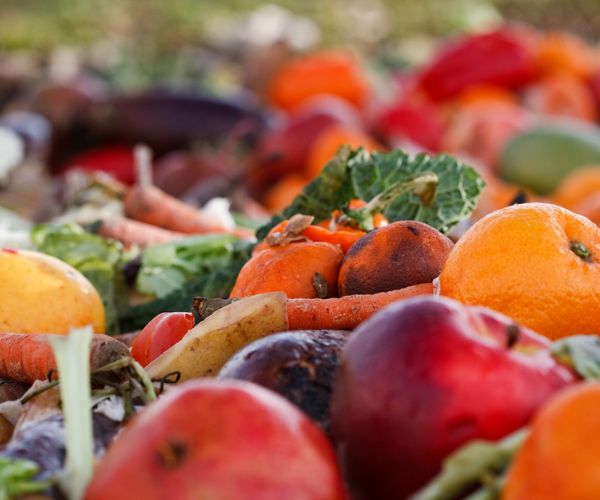Customer testimonials
Setting up a processing workshop: Crossed views between the cannery La Jovinienne and the incubator-cooperative Les Champs des Possibles
30
Nov
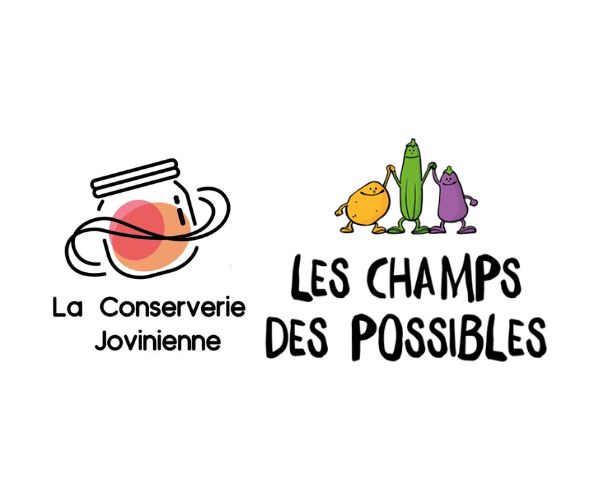
Published on : 30/11/2022
The CTCPA accompanied the incubator and cooperative of agricultural and food activities Les Champs des Possibles and the cannery La Jovinienne in the implementation of their respective processing workshops. Hugo Guggenbuhl, in charge of accompaniment and training (Les Champs des Possibles) and Maxence Lorencki and Hugo Frederich, founders of La Jovinienne (previously hosted by the incubator) talk about their activity and our accompaniment.
Les Champs des Possibles: an incubator and cooperative for agricultural and food activities
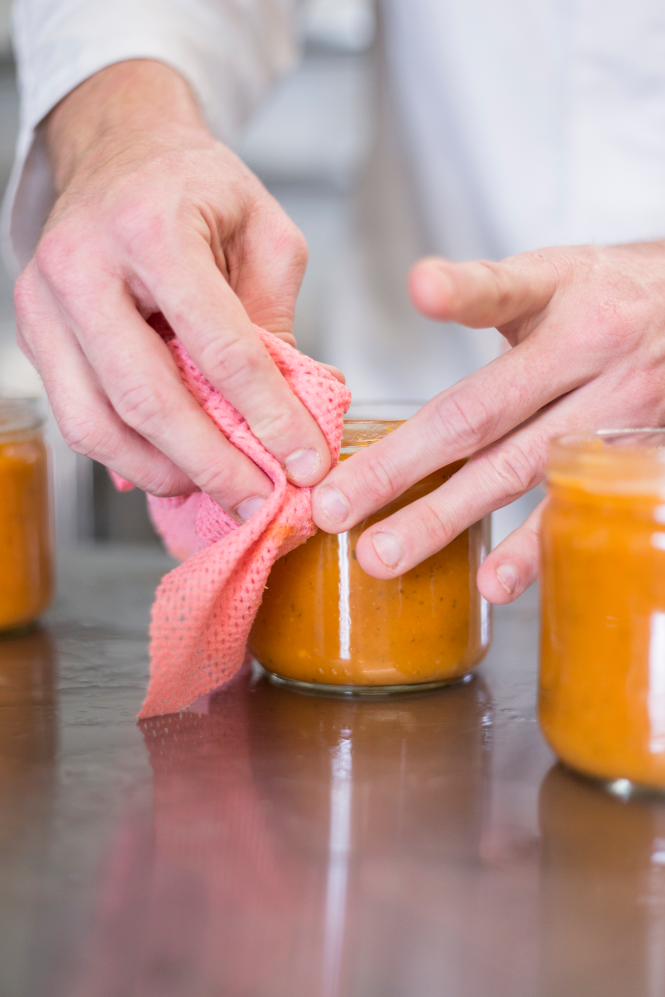
Photo Champs des Possibles, A.Serrano
Introduce us to your business
Les Champs des Possibles is a incubator and cooperative of agricultural and food activities created in 2009. We address ourselves to the holders of organic and peasant agricultural projects, in artisanal food processing, and service activities around these themes. We offer 3 types of support:
- Accompaniment in the context of an activity test (the "CAPE" contract allows a project to be tested over a period of 1 to 3 years).
- Entrepreneurship in a cooperative: perpetuate your activity by becoming a salaried entrepreneur of the cooperative
- Training on the professions of the farming / agri-food industry
The purpose of the cooperative is to allow people to start a new business.
In what context did you call upon the CTCPA?
We decided to create a food processing laboratory on the farm of Toussacq (south-east of the Seine et Marne). Located on a collective farm, this laboratory allows entrepreneurs to test an activity without going into debt and thus discover the reality of a new profession. Starting a business in the processing industry is not that easy, you have to know how to manage the production, marketing, accounting, etc. aspect, not to mention the initial investments that can be important when you start. With our model, the test persons (also called broods) take much less risk and can unload some of the administrative constraints while being supported in their project in a cooperative and collective framework. Les Champs des Possibles also allows them to meet and exchange with their peers, and all this creates a collective emulation that is beneficial for all projects!
How did the CTCPA support you?
The CTCPA is a technical center of reference in the food industryespecially in the canning industry. We called upon the CTCPA to have recommendations on the purchase of our autoclave, to map it and finally to validate the scales. It is Xavier DEVIS who took care of our project. He also trained us (3 broods, 1 employee, 1 external person).
What did you think of the CTCPA's support?
On our side, we have been very satisfied with the support of the CTCPA. We can also say on behalf of our entrepreneurs that we have good feedback on the training courses "Conducting a canning activity" and "Habilitation to operate an autoclave" which are very complete.
La Jovinienne has started its activity within the Champs des Possibles, what is your view on their project?
Hugo and Maxence from La Jovinienne have done a "test of activity" of 1 year and a half. They arrived during the course of the laboratory work. I think that it was beneficial for them because they were able to see the reality of creating a processing laboratory, the time it took and the difficulties encountered during the development.
Regarding their products, I personally love it! They have done really well. Their ranges work well, the recipes are greedy. Moreover their products are sold in the store of the Ferme de Toussacq.
When they left the Champs des Possibles to set up their own business, they had already started their activity with a clientele and a stock of finished products, guaranteeing them a base of turnover as soon as they started their new business. We are very proud of them!
La Jovinienne: an organic, artisanal and local cannery trained and supported by the CTCPA!
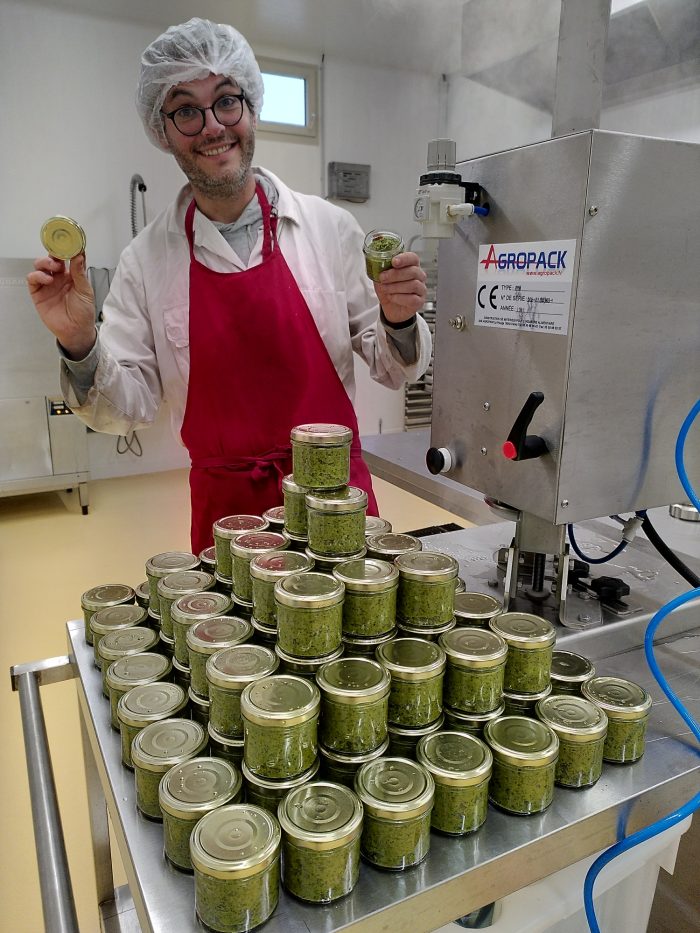
Tell us about La Jovinienne
La Jovinienne is an organic, artisanal and local cannery founded in March 2021. Before having our own premises in Saint-Julien-du-Sault (89), our activity was hosted by Les Champs des Possibles.
We offer several ranges of preserves: jams, spreads, condiments as well as soups and ready meals. We work exclusively with vegetables and fruits in season. 70% of our fruits and vegetables come from less than 70 km from our production site.
Why did you choose to become a canner as a career change?
The cannery is the convergence of several paths in the trades that make sense. To be a canner is to touch food, which is a key vector to act for the world of tomorrow while developing a company.
How did you get into this business? What did you think of the CTCPA's training to start your activity?
We have started the training "Conducting a canning activity" of the CTCPA. It is an essential training before any start of activity. We don't see how we could have been canners without this training! We learned a lot during the training. It is intense but you don't pay and you don't travel for nothing! It gives you the tools to be able to manage afterwards and make your own choices while having recommendations. Moreover, it is financed by the CPF, which is an undeniable advantage.
Then we were covered by the Champs des Possibles for a year and a half. We also had the opportunity to co-build their transformation laboratory. It was very useful for us to create our own afterwards!
When we had our own laboratory of transformation, we called upon the CTCPA of Amiens (Xavier DEVIS and Nicolas MARISSAL) to transfer the established process, to map our autoclave and to establish our scales. After the service, the accompaniment does not stop. You can always call the CTCPA for advice. It's really valuable!
Why did you choose to join Les Champs des Possibles?
In our opinion, the 3 positive points to remember are:
- Access to a processing laboratory
- The ability to sell products
- Have "colleagues" with whom to share experiences and/or collaborate
Being hosted allows us to test ourselves and to be sure that we want to launch an activity before doing so! If we had to do without testing, we would have had to invest.
We left with a full order book!
Where can we find your products?
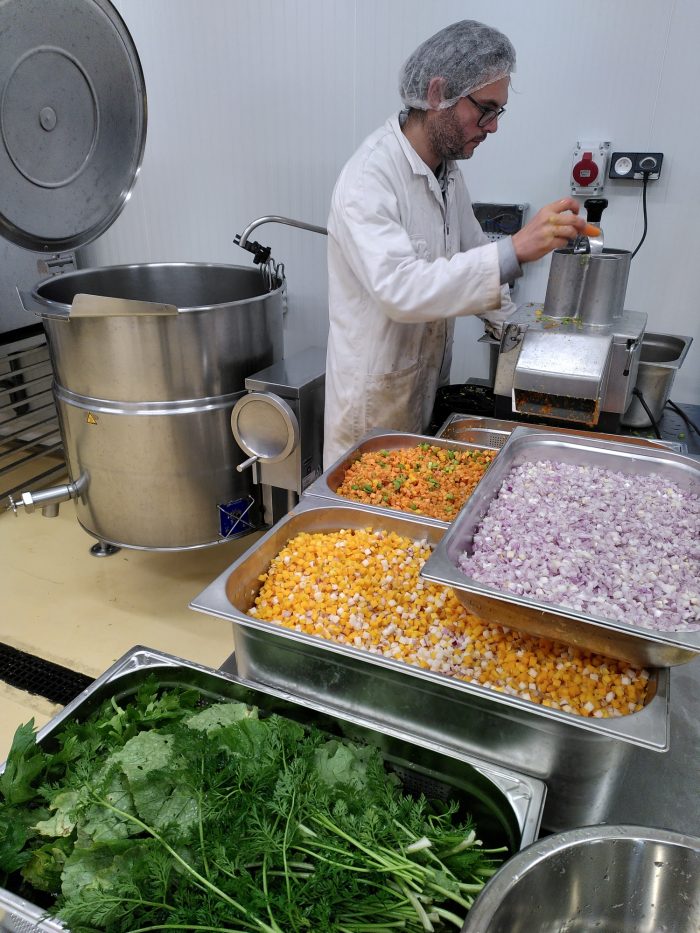
Our preserves are distributed in specialized stores / delicatessens in the Yonne. We also sell directly in AMAP (Association for the maintenance of a peasant agriculture) and on markets. Soon our products will be distributed at Intermarché !
Where do you stand today?
We are still solidifying what we have. We are trying to improve our layout, our equipment. But our business is doing well, we are proud to be able to offer our preserves!
How do you see the evolution of La Jovinienne ?
We are particularly concerned by the ecological and energy transition. Later on, we are going to focus on water recovery and 0 carbon. To be continued!
__
CONTACT THE FIELDS OF POSSIBILITIES :
- Hugo Guggenbuhl : hugo@leschampsdespossibles.fr
- Website - Facebook
CONTACT LA JOVINIENNE :
CONTACT CTCPA :
- CTCPA Amiens : amiens@ctcpa.org
- Xavier DEVIS : xdevis@ctcpa.org
__
Train as a canner with the CTCPA: Cannery training: learn to make cans (CPF) (ctcpa.org). This training is 100% financeable via your personal training account.
The CTCPA accompanies you on the development and validation of heat treatment schedules : mapping of chambers, validation of scales, development and optimization of scales, microbiology stability controls...



